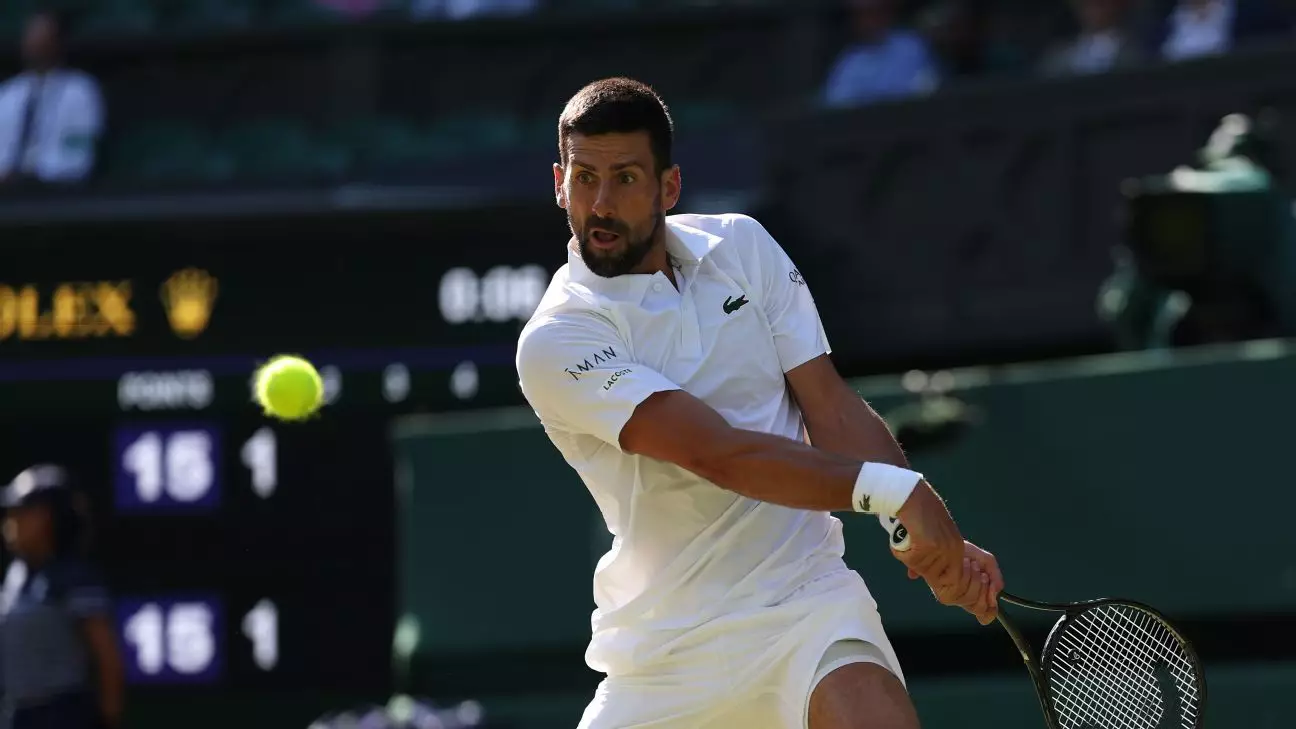In the realm of elite tennis, Novak Djokovic has long epitomized resilience and dominance. Yet recent developments cast a stark light on the vulnerable myth of athletes as immutable icons. Despite his record-breaking achievements and unwavering confidence, Djokovic’s emotional exit at Wimbledon underscores a fundamental truth: no athlete, no matter how legendary, is immune to the relentless march of time. His post-match comments, suggesting that this might not be his last appearance, betray an underlying insecurity—a recognition that the cherished narrative of perpetual greatness is both fragile and fleeting.
The chorus of admiration that followed his exit, with the crowd’s ovation and his heartfelt wave, exemplifies society’s tendency to both idolize and perpetuate the idea of athletic immortality. His dismissal, however, reveals an internal debate: Is the fear of retirement driven by a genuine desire for competition or by an unsettling awareness of physiological decline? Djokovic’s acknowledgment of physical compromising hints at an inconvenient truth: aging is an immutable force, and even the most resilient champions are not exempt from its grasp. The idea that success in tennis is eternal is a comforting myth, but one that is increasingly challenged as athletes near the twilight years of their careers.
Retirement Rumors and the Culture of the Never-Ending Fight
The media storm surrounding Djokovic’s future plans exemplifies our society’s obsession with youth, victory, and the obsession with a “last” chapter. His ambiguous statements leave fans and critics alike in a liminal space—hoping and fearing the end of an era. This ambiguity feeds into a larger cultural narrative: that athletes must continually prove themselves, that stepping away signifies failure rather than maturity or self-awareness. Djokovic’s decision to remain non-committal about retirement is not merely a personal choice; it emblemizes society’s refusal to accept aging gracefully.
Moreover, the intense scrutiny at the press conference and the spectacle of media deliberation highlight a troubling reality: athletes are increasingly treated as commodities whose retirements are public performances rather than private milestones. The pressure to perform, to cling to relevance, can distort an athlete’s authentic desire to transition out of the sport. Djokovic’s ongoing pursuit of titles, despite diminishing physical capabilities, suggests a desire to cling to relevance—yet it also illuminates the exhausting toll of such an obsession. The never-ending chase for dominance becomes a double-edged sword, where personal workload and societal expectations collide, often pushing athletes into premature or involuntary retirements.
The Illusion of Control and the Reality of Decline
What Djokovic’s situation uniquely exposes is the dangerous illusion of control that many top-tier athletes cling to. Their painstaking dedication and relentless discipline foster a false sense of invincibility. However, the physical and mental toll of professional tennis is cruelly unforgiving. Despite Djokovic’s assertions that he remains at his peak, the reality is a gradual erosion of physical capabilities that even the most meticulous training cannot fully shield from.
This struggle against aging isn’t merely about winning titles; it taps into a deeper human desire for continuity, influence, and relevance. Djokovic’s current phase exemplifies how even the most decorated athletes are confronted with a stark choice: accept the inevitable decline and gracefully transition, or persist in the illusion of eternal youth and success. The latter often leads to burnout, injury, or a hollow version of victory devoid of the joy that once defined sport. Djokovic’s acknowledgment of being “physically compromised” indicates an internal conflict—a recognition that external achievements no longer wholly reflect current reality.
The Politics of Legacy and the Future of Tennis
From a broader perspective, Djokovic’s potential exit symbolizes not just the end of a stellar career but also a pivotal moment in the political landscape of tennis. The sport’s narrative often revolves around rivalry and succession—Alcaraz and Sinner ascending while Djokovic contemplates his future. This generational shift has political implications: it questions whether the sport can sustain its grandeur without its aging icons.
Furthermore, Djokovic’s ambivalence about retirement aligns with a center-leaning liberal perspective that values self-awareness, dignity, and the importance of mental and physical well-being over societal pressures for relentless achievement. The obsession with records and titles, often glorified in sports culture, can overshadow the human aspect—the vulnerability, the need for balance, and the capacity for graceful transition. True strength lies not solely in victory but in accepting decline with dignity, a lesson many athletes and fans alike could benefit from embracing.
As tennis navigates this transitional period, Djokovic’s murmured uncertainty becomes a mirror for society’s broader struggle with aging, relevance, and the meaning of greatness. It challenges fans to rethink the unending pursuit of records and instead recognize the value of a well-lived career—one that honors resilience, self-awareness, and ultimately, the humane acceptance of life’s natural progression.

Leave a Reply